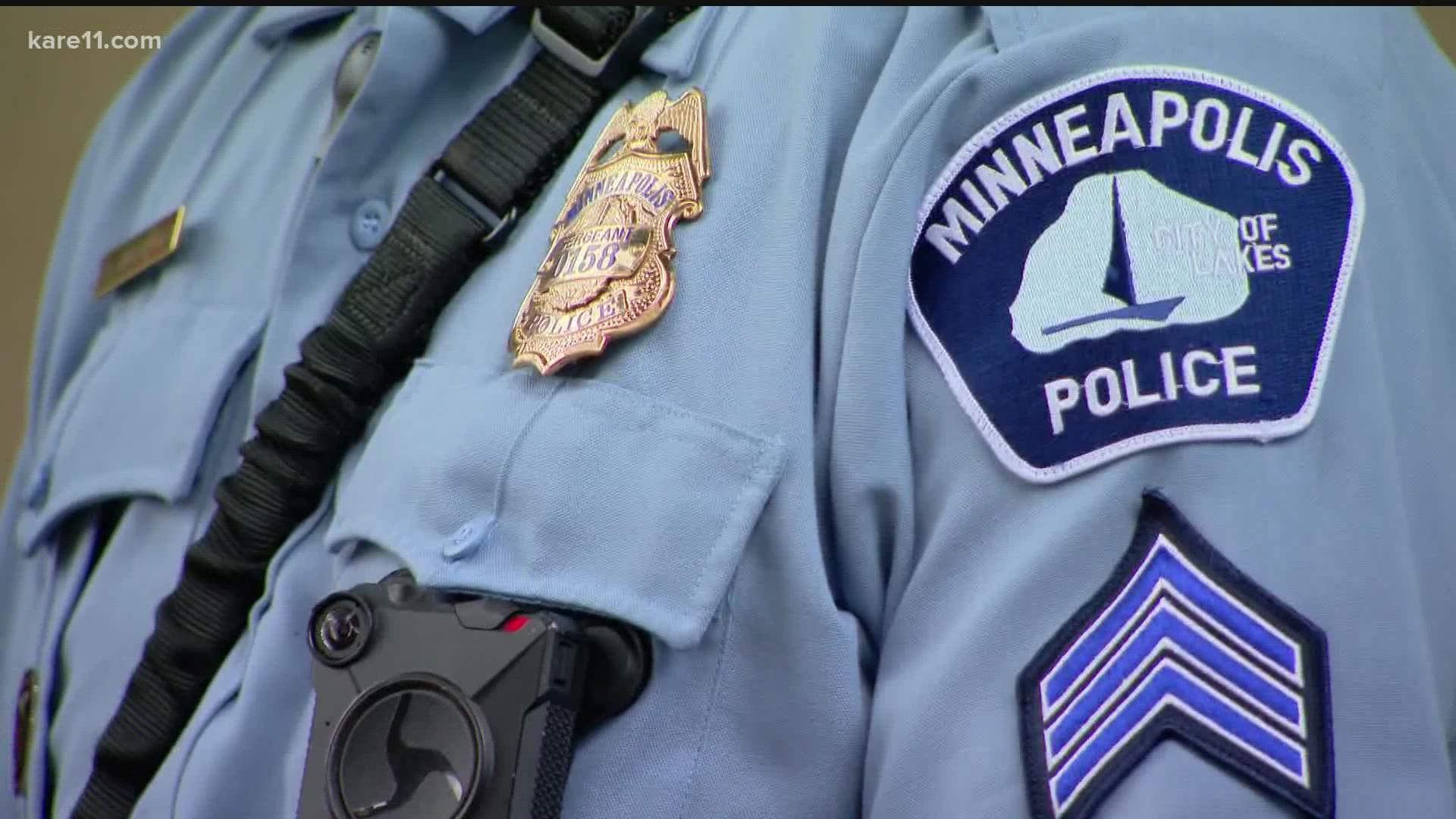MINNEAPOLIS — Minneapolis Mayor Jacob Frey announced a moratorium on no-knock warrants in the city, following the shooting death of Amir Locke by the Minneapolis police on Wednesday.
“To ensure safety of both the public and officers until a new policy is crafted, I’m issuing a moratorium on both the request and execution of such warrants in Minneapolis," said Frey in a statement.
The statement went on to say the city is "bringing in national experts DeRay McKesson and Dr. Pete Kraska of Eastern Kentucky University to review and suggest revisions to the department’s policy."
McKesson and Kraska were both instrumental in forming "Breonna's Law" in memory of Breonna Taylor, a Black woman who was shot and killed by Louisville, Kentucky police in March of 2020.
The city released officer body camera footage of Locke's killing Thursday, showing him sleeping on a couch in an apartment inside the Bolero Flats building in downtown Minneapolis. The video then shows Locke being startled awake as officers executed a no-knock warrant at the unit, before being shot and killed.
Law enforcement sources, however, told KARE 11 investigative reporter A.J. Lagoe the warrant that resulted in Locke's death was not supposed to be a no-knock warrant. When Minneapolis police were asked to assist St. Paul Police with executing the warrant, the MPD insisted the warrant be changed to be executed without knocking first.
In a statement Friday, a spokesperson from the St. Paul Police Department said it's "common practice" to ask other agencies help serve a warrant outside the SPPD's jurisdiction.
"After the warrants in this case were signed by a Hennepin County judge, the Saint Paul Police Department asked the Minneapolis Police Department to carry out three of them at an apartment complex in downtown Minneapolis. The apartment complex management team complied with the court orders and provided access to the MPD officers," the statement said.
It went on, "Each agency has its own protocols and policies for serving search warrants. The agency responsible for serving the warrant determines what tactics that will be used."
The department said the warrants, which have not been made public, will be kept under seal until the court directs otherwise.
What is a no-knock warrant?
In the state of Minnesota, a no-knock search warrant is defined as "a search warrant authorizing peace officers to enter certain premises without first knocking and announcing the officer's presence or purpose prior to entering the premises." Minnesota statutes might also refer to them as dynamic entry warrants or unannounced entry warrants.
In the case of Amir Locke, body-worn camera video released by the MPD showed officers executing a no-knock warrant the morning of Feb. 2. In the video, an officer is seen opening the apartment door with a key before the MPD SWAT team crosses the threshold into the unit while officers yell "Police, search warrant" multiple times.
The officers do not knock or announced their presence before entering the unit.
No-knock warrants in Minneapolis
In November 2020, Frey and then-Minneapolis Police Chief Medaria Arradondo announced a new policy regarding no-knock warrants, requiring all MPD officers to announce themselves and their purpose before entering a residence. There would be exceptions for some circumstances, they said, such as hostage situations.
Frey's statement Friday echoed some of the language from 2020's policy change.
"The only permissible way for MPD officers to execute a warrant is the 'knock-and-announce' approach, which includes knocking, announcing, waiting a reasonable amount of time and only then entering. To execute a no-knock warrant under the moratorium, there must be an imminent threat of harm to an individual or the public and then the warrant must be approved by the Chief."
The 2020 policy was born following the murder of George Floyd, who was killed by former Minneapolis police officer Derek Chauvin two months after the death of Breonna Taylor. After Floyd's murder, Taylor's name was also chanted nationwide during protests against police killings of Black people.
The 2020 policy change referred to two types of warrants: "entry with announcement," and warrants that involve "unannounced entry" (often referred to as "no-knock" warrants). The new policy was implemented in an effort to limit how officers can execute the latter type, saying officers have to announce themselves as police and say they have a search warrant prior to entering a residence.
These announcements should include the officer’s authority and what the officer wants the subject to do.
It also specifies that officers should be "mindful" of any known or reasonably suspected barriers that might keep people from cooperating, like language barriers, mental and emotional capacity, and deafness.
According to the policy, the SWAT team would be tasked with handing such warrants. The policy included any search warrant entry made by MPD officers, including when working with other agencies.
What now?
Minnesota Attorney General Keith Ellison has agreed to join forces with Hennepin County Attorney Mike Freeman to assist the BCA in its investigation into Locke's death. Following Floyd's death, Ellison's office successfully convinced a jury to convict Derek Chauvin of murder, landing him in prison for more than 22 years.
"I promise the Locke family and all Minnesotans that we will work with the Hennepin County Attorney's Office to conduct a fair and thorough review of the BCA investigation and that we will be guided by the values of accountability and transparency," Ellison said in a social media post.
Co-attorney for the Locke family, Tony Romanucci, asserted in a press conference in the days following Locke's shooting, that the Minneapolis SWAT team errored in their execution, saying officers didn't announce themselves or the serving of a warrant until they were already over the threshold of the front door. He called it "an absolutely disgusting violation of civil rights."
Romanucci said there was just one way this interaction would end.
"Amir was doomed to die, he had no chance," Romanucci insisted.
Watch more local news:
Watch the latest local news from the Twin Cities in our YouTube playlist:

